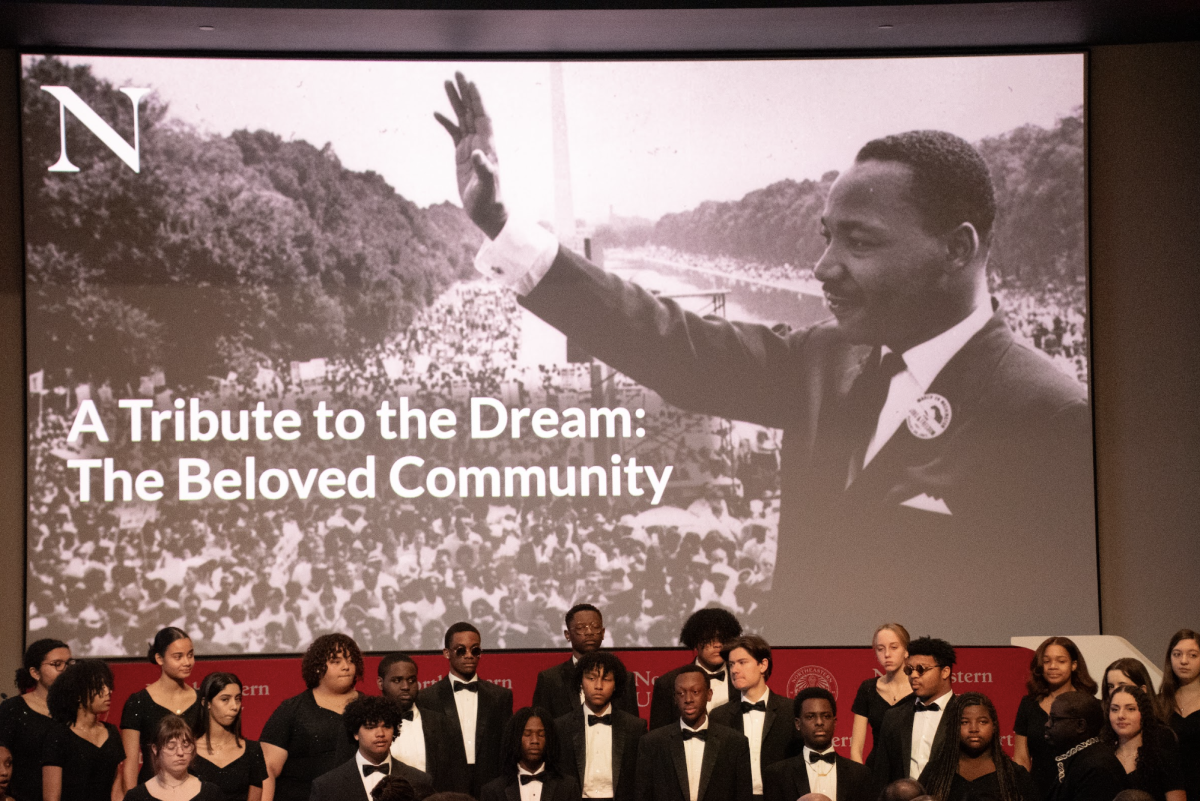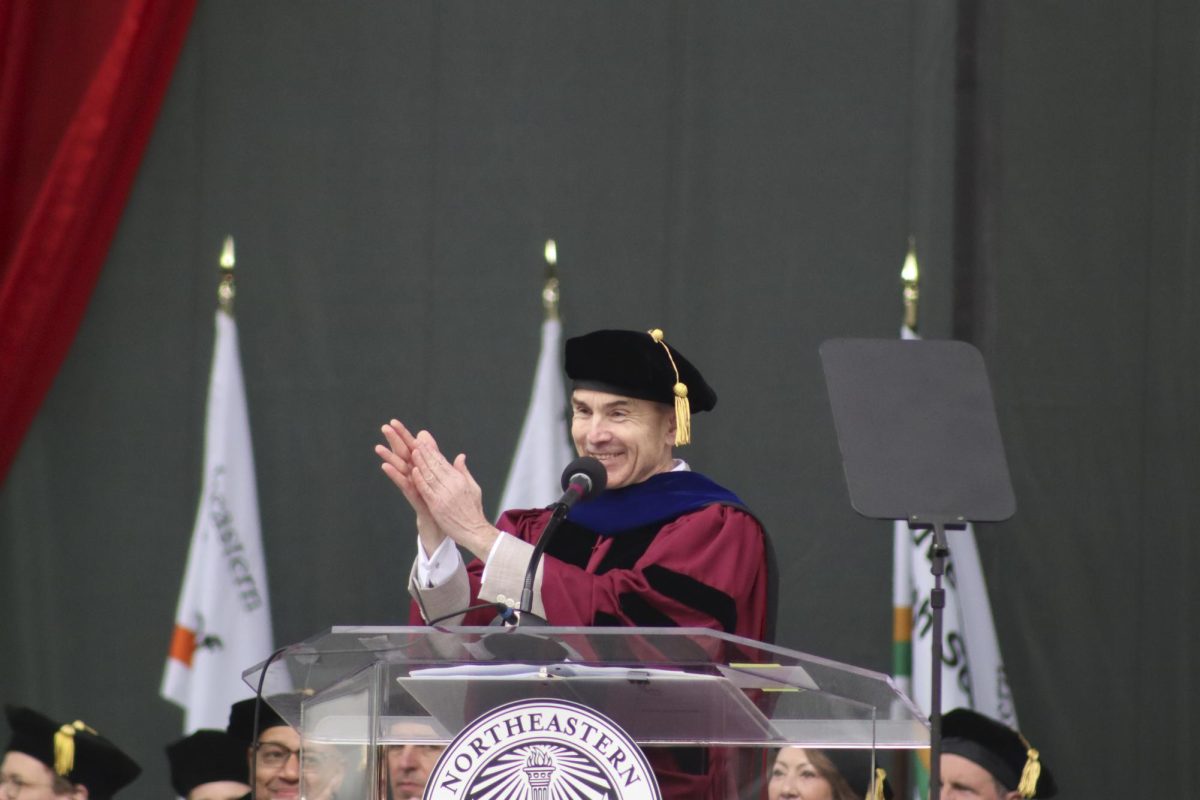By Hayley Miller, News Staff
‘No matter how small, no matter who you are, you can make a difference,’ said the voice of Kenyan Nobel Peace Prize Laureate Wangari Maathai, the subject of the documentary ‘Taking Root,’ shown in the Curry Student Center Wednesday.
‘This is an amazing story about one person making a significant, positive change,’ said Carol Rosskam, sustainability program manager at Northeastern and organizer of the event.
Scheduled to coincide with the COP15 United Nations Climate Change Conference Copenhagen 2009, the screening of the documentary served to show what major changes one person can make in a seemingly overwhelming struggle like climate change, Rosskam said. The critically-acclaimed film tells the story of Maathai, creator of the Green Belt Movement and the first East African woman to earn a Ph.D.
A self-proclaimed ‘child of the soil,’ Maathai took an interest in saving the forest after witnessing the destruction of a fig tree she used to play near during her childhood.
In 1977, Maathai started the Green Belt Movement in an effort to resist dramatic deforestation in Kenya. Maathai and other women concerned about the numerous resources lost to deforestation, including not only loss of trees, but the ecosystems surrounding them, took on the task of learning how to re-plant the trees.
‘One action or effort can be transformative,’ Rosskam said. ‘This woman started planting trees and one tree led to 35 million trees.’
Facing many trials and tribulations along the way, from harassment to imprisonment, Maathai worked to keep the movement thriving and empowered women throughout Kenya to stand up for their rights.
Today, the movement employs more than 150,000 Kenyans and has created another branch called Green Belt Movement International which instills Maathai’s tactics to empower other women and environmental activists around the world through planting trees.
‘It is the people who must save the environment. It is the people who must make their leaders change. We must stand up for what we believe in and we musn’t be intimidated,’ Maathai said in the documentary.
Students shared in the message of empowerment and the ability of a single person brought on by the documentary.
‘I was impressed and shocked of the power she brought to her people and her country just from the idea of planting trees. It really shows the ability each person holds,’ said Lauren Williams, a middler international affairs and political science dual major.
Senior French and international affairs dual major Brad Hooker said he thought the documentary was incredible.
‘It plays to a lot of different topics:’ women’s rights, grassroots movements, et cetera. It has a really empowering message,’ he said.
Rosskam said she plans to show the documentary again in early January along with ‘The Age of Stupid,’ a film telling the story of a man living in 2055 and enduring the devastation of climate change, implying a societal neglect of the issue.
‘Hope and empowerment can translate into action,’ Rosskam said. ‘A really big part of [making a change] is getting involved and joining us in our sustainability programs and projects at Northeastern.’








